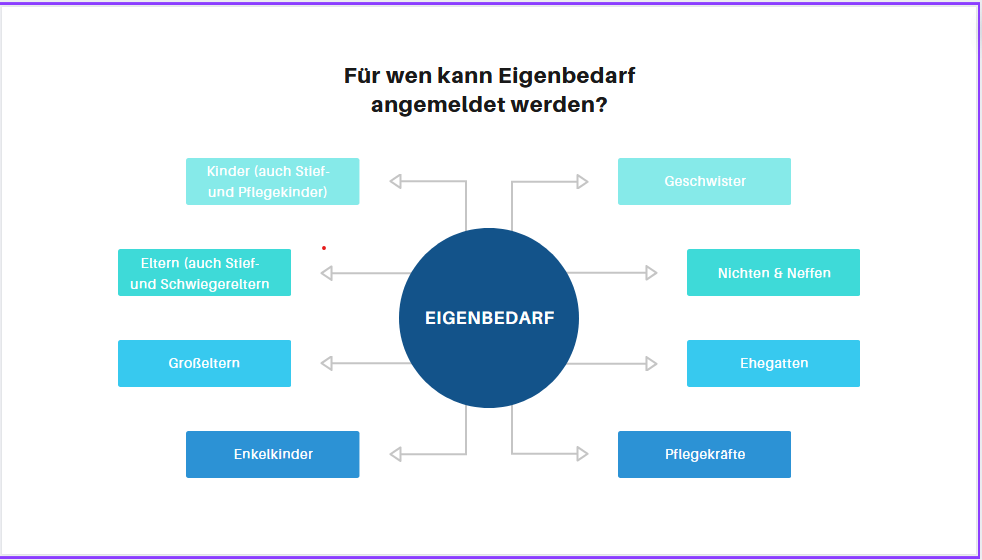Hamburg-Bergedorf District Court, judgement of 29/05/2024, ref.: 412 Ds 25/23
Background and initial situation
The judgement deals with the case of a woman who, together with her partner at the time, planned to return to Hamburg in 2016 to start a family and possibly take over the management of her father's company. To this end, she purchased a property in Hamburg-Bergedorf, which was in foreclosure at the time. The property was occupied by a family with seven children, all of whom were of school age and some of whom had learning disabilities or autism. The family had lived in the house for years and there was a family tenancy with no operating costs. After purchasing the property, the defendant issued a notice of termination for personal use in order to use the house for herself and her parents. The tenants objected to the cancellation, which led to an eviction dispute. Ultimately, the parties agreed on an eviction settlement, which provided for the flat to be handed over by 30 June 2020.
The change of plans and the behaviour of the defendants
During the eviction dispute, the defendant's life circumstances and plans changed considerably. She separated from her partner in 2017 and began a new relationship, which ultimately kept her in Switzerland. Despite the separation and the associated cancellation of the original plan to move to Hamburg and build a multi-generational house, she continued to pursue the eviction proceedings against the family. In 2019, but no later than October of the same year, it became clear that the defendant no longer had a serious desire to use the property herself. Instead, her focus shifted to renting out and market-optimised use of the property, as evidenced by her communication with an architect and other parties involved. Despite the fact that she no longer needed the property for her own use, she did not inform the tenants and thus caused them to move out. Shortly after the eviction, she entered into sales negotiations, which ultimately led to a profitable sale of the property.
Judicial evidence and evaluation
The defendant denied the allegation of fraud by omission by stating that she had been interested in moving to Hamburg until the end. However, the court took a different view and found that the defendant no longer had a serious personal need by October 2019 at the latest. This assessment was based on the testimony of several witnesses and email correspondence, which clearly demonstrated that the defendant had changed her plans and was primarily pursuing the commercial utilisation of the property. The accusation of defamation in connection with a newspaper article containing a quote from the defendant was dropped, however, as the court was unable to convince itself that the defendant had actually made the alleged statement.
Legal assessment and sentencing
The court found that by failing to inform the tenants of the cancellation of the personal use, the defendant had fulfilled the offence of fraud by omission. As part of the legal assessment, the court dealt in detail with the defendant's guarantor obligations arising from the special relationship of trust and dependency between landlord and tenant. It was explained that such a guarantor obligation exists until the final eviction of the flat, even if the tenant has previously accepted an eviction settlement. This view is based on case law and emphasises the high need for protection of tenants in existential life situations. In addition, the court rejected the argument that an earlier cancellation of the guarantor obligation would unreasonably disadvantage the landlord.
Consideration of the effects and the motive
Various factors were taken into account in favour of and against the defendant when sentencing her. The fact that she had no previous convictions and that the offence had been committed several years ago worked in her favour. The emotionally stressful situation due to the protracted eviction dispute and conflicts within the family were also considered mitigating factors. The media coverage, which tended to devalue the defendant, was also taken into account in her favour. However, the considerable negative impact on the affected family, in particular on the mentally stressed children, was taken into account to their detriment. They suffered considerably as a result of the move and social uprooting, which emphasised the seriousness of the crime.
Conclusion and judgement
As a result, the court came to the conclusion that a conviction of the defendant for fraud by omission was justified. The imposition of a fine of 90 daily rates appeared appropriate to the court in view of the seriousness of the offence and the mitigating circumstances. The exact amount of the daily rates was calculated on the basis of the defendant's net income. A more lenient sentence, for example in the form of discontinuation of the proceedings in return for a fine, was out of the question due to the general preventative effect of the judgement. The judgement emphasises the importance of tenant protection and the responsibility of landlords to inform tenants of significant changes to the situation in good time.

Source: Hamburg-Bergedorf Local Court
Important Note: The content of this article has been prepared to the best of our knowledge and belief. However, due to the complexity and constant changes in the subject matter, liability and guarantees are excluded.Important Note: The content of this article has been prepared to the best of our knowledge. However, due to the complexity and constant changes in the legal field, we exclude liability and warranties.
If you need legal advice, please feel free to call us at 0221- 80187670 or email us at info@mth-partner.de
Lawyers in Cologne provide advice and representation in tenancy law.

